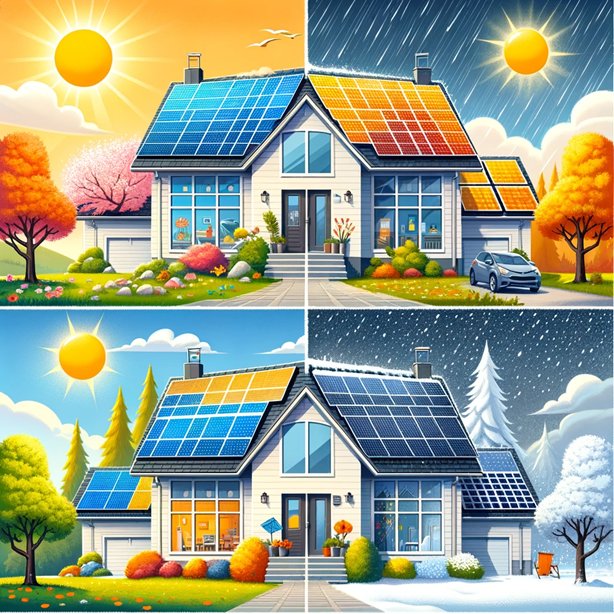Many people wonder how weather and seasonal changes impact the performance of solar panels. While it's true that solar panels work most efficiently in direct sunlight, they can still generate electricity on cloudy days. Here’s a breakdown of how different seasons and weather conditions affect your solar PV system:
Summer: This is typically the best season for solar energy production. Longer days and more direct sunlight mean your panels can produce the maximum amount of electricity.
Spring and Fall: These seasons offer a good balance. Although days are shorter than in summer, cooler temperatures can improve the efficiency of solar panels.
Winter: Solar panels still work in winter, but shorter days and potential snow cover can reduce output. However, panels are designed to shed snow quickly, and the reflection off snow can even boost performance on sunny winter days.
Cloudy Days: Even on overcast days, solar panels can generate power. While output is lower than on sunny days, modern panels are quite efficient at capturing diffused sunlight.
Rainy Weather: Rain can actually help your system by washing away dust and dirt that can accumulate on panels, keeping them operating efficiently.
Understanding these seasonal variations can help you optimize the performance of your solar PV system and set realistic expectations for energy production throughout the year. 🌞❄️🌧️
Stay tuned for more tips on making the most of your solar investment! #SolarEnergy #RenewableEnergy #SustainableLiving
